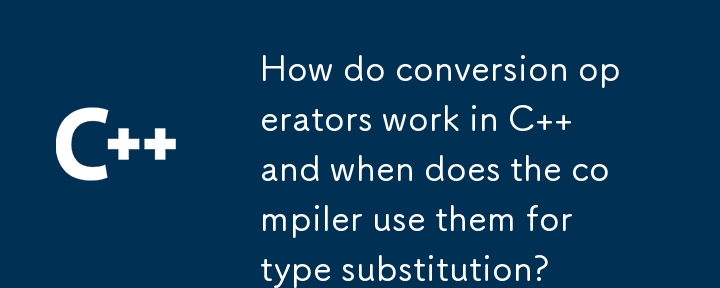
Conversion Operators in C
Question: How do conversion operators work in C , and when does the compiler attempt to substitute the type defined after the conversion operator?
Answer: Conversion operators in C facilitate type conversions between classes or from classes to fundamental types. The compiler substitutes the type specified after the conversion operator in the following situations:
Conversion during Argument Passing:
- During argument passing, the rules for copy initialization apply, considering any conversion function regardless of whether it converts to a reference or not.
- Example: void f(B); int main() { f(A()); }
Conversion to Reference:
- In conditional operators, conversion to a reference type is possible if the type being converted to is an lvalue.
- Example: B b; 0 ? b : A();
Conversion to Function Pointers:
- Conversion functions to function pointers or references can be used when a function call is made.
- Example: typedef void (*fPtr)(int); void foo(int a); struct test { operator fPtr() { return foo; } };
Conversion to Non-Class Types:
- User-defined conversion functions can be used for implicit conversions involving non-class types.
- Example: struct test { operator bool() { return true; } };
Conversion Function Templates:
- Templates can be used to create conversion functions that allow a type to be convertible to any pointer type.
- Example: struct test { template operator T*() { return 0; } };
-
Caution: These should be used cautiously as they can lead to ambiguous conversions.
The above is the detailed content of How do conversion operators work in C and when does the compiler use them for type substitution?. For more information, please follow other related articles on the PHP Chinese website!






